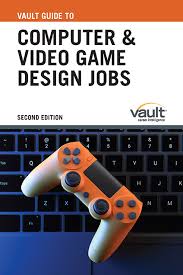Game Design Jobs, is a broad field, and various roles specialize in different aspects of game creation. Here’s a closer look at some of the key positions:
1. Game Designer
Role: Game designers are responsible for conceptualizing and developing the gameplay mechanics, rules, and overall structure of a game. They create the player experience, often crafting narratives and character arcs to enhance engagement.
Skills Required:
- Strong creative thinking and storytelling abilities
- Knowledge of game mechanics and player psychology
- Proficiency in design documentation and prototyping tools
2. Level Designer
Role: Level designers focus on creating the game environments where players navigate and complete challenges. They are responsible for the layout, pacing, and balance of gameplay elements within each level.
Skills Required:
- Understanding of spatial design and player flow
- Strong analytical skills to balance difficulty and pacing
- Familiarity with level design software (e.g., Unity, Unreal Engine)
3. User Experience (UX) Designer
Role: UX designers ensure that players have a seamless and enjoyable experience when interacting with a game. They focus on user interfaces, controls, and overall usability.
Skills Required:
- Strong knowledge of usability principles and design methodologies
- Ability to conduct user research and gather feedback
- Proficiency in design and prototyping tools (e.g., Adobe XD, Figma)
4. Narrative Designer
Role: Narrative designers create the story elements of a game, including character development, dialogue, and plot structure. They work closely with game designers to integrate the narrative into the gameplay experience.
Skills Required:
- Strong writing and storytelling skills
- Understanding of pacing and character arcs
- Ability to collaborate with other design teams
5. Technical Designer
Role: Technical designers bridge the gap between design and programming. They often work with game engines to implement gameplay mechanics and features, ensuring that design ideas are executable within technical constraints.
Skills Required:
- Strong understanding of programming languages (e.g., C#, C++)
- Familiarity with game engines (e.g., Unity, Unreal Engine)
- Problem-solving skills to address technical challenges
6. Art Director
Role: Art directors oversee the visual style of a game, guiding artists to ensure a cohesive aesthetic that aligns with the game’s vision. They are responsible for creating mood boards, style guides, and supervising the art production.
Skills Required:
- Strong artistic skills and an eye for design
- Experience with 2D and 3D art tools (e.g., Photoshop, Maya)
- Leadership and communication skills to manage an art team
Skills Needed for Game Design Jobs
Regardless of the specific role, several core skills are beneficial for all game design positions:
- Creativity: The ability to think outside the box and generate innovative ideas is crucial in game design.
- Technical Proficiency: Familiarity with programming languages, game engines, and design software is essential.
- Collaboration: Game development is often a team effort, requiring strong communication and interpersonal skills.
- Problem-Solving: Designers must be able to troubleshoot issues and come up with solutions quickly during development.
Breaking Into the Industry
For aspiring game designers, breaking into the industry can be competitive, but there are several steps to enhance your chances:
1. Build a Portfolio
Creating a strong portfolio showcasing your design work is crucial. Include examples of game mechanics, level designs, narratives, or any relevant projects. Personal projects or collaborations with other developers can demonstrate your skills and creativity.
2. Gain Experience
Internships, freelance work, or participation in game jams can provide valuable experience. These opportunities allow you to apply your skills in real-world scenarios, network with industry professionals, and gain insights into the development process.
3. Continuous Learning
The gaming industry is constantly evolving, so staying updated with the latest trends, tools, and technologies is important. Online courses, tutorials, and industry events can help you expand your knowledge and skills.
4. Network
Building connections in the gaming community can open doors to job opportunities. Attend industry conferences, join online forums, and engage with other developers on social media to expand your network.
Conclusion
Game design jobs offer a diverse range of opportunities for those passionate about creating interactive entertainment. Whether you’re interested in storytelling, level design, or technical implementation, the gaming industry provides a vibrant environment for creativity and innovation. By honing your skills, building a strong portfolio, and networking with industry professionals, you can carve out a successful career in game design and contribute to the next generation of gaming experiences. The world of game design is not just about creating games; it’s about crafting experiences that entertain, inspire, and bring people together.




